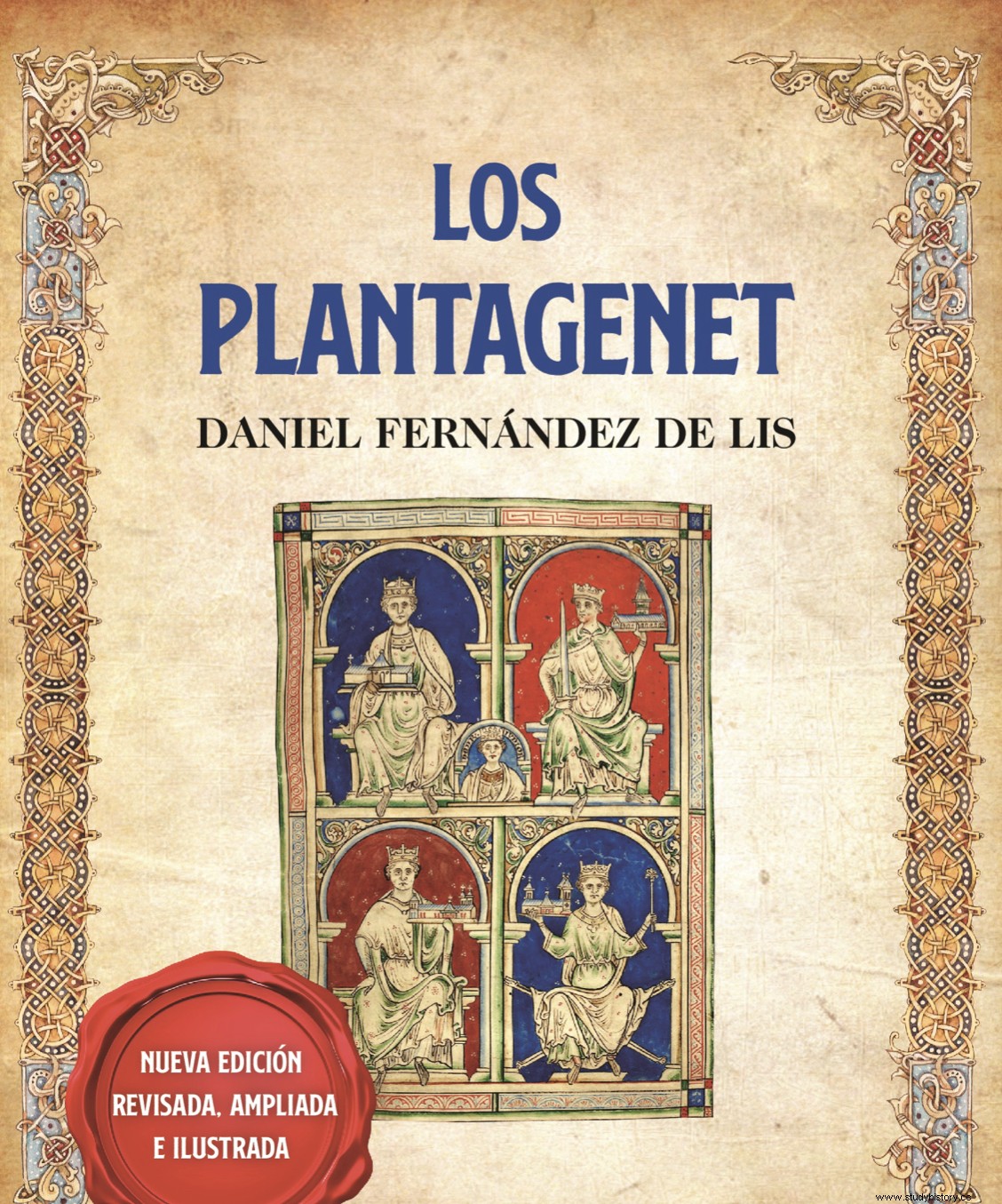
Entry taken from the book The Plantagenets
George, Duke of Clarence, is a unique case in history. Brother of two kings of England, Edward IV and Richard III, related by marriage to a man who became known as the Enthroner for his ability to decide who sat on the throne of England during the Wars of the Roses, first in line to the throne by the House of York for several years and also recognized as heir to the House of Lancaster for a time, However George of Clarence did not end his days on the throne of Westminster but in a dungeon in the Tower of London. But it cannot be said that he did not deserve the end that destiny separated him from, an end that, in keeping with the life he had led, is shrouded in an aura of mystery and legend.
George de Clarence was the second son of Richard Plantagenet, Duke of York, the man who started the Wars of the Roses by claiming that his right to the throne as a descendant of the second and of Edward III's fourth son was better than that of Henry VI, the last king of the Lancastrian branch of the Plantagenet dynasty. Ricardo Plantagenet died at the battle of Wakefield in 1460 without having been able to wear the crown, something that his eldest son and elder brother of Jorge de Clarence, Eduardo IV, did achieve.
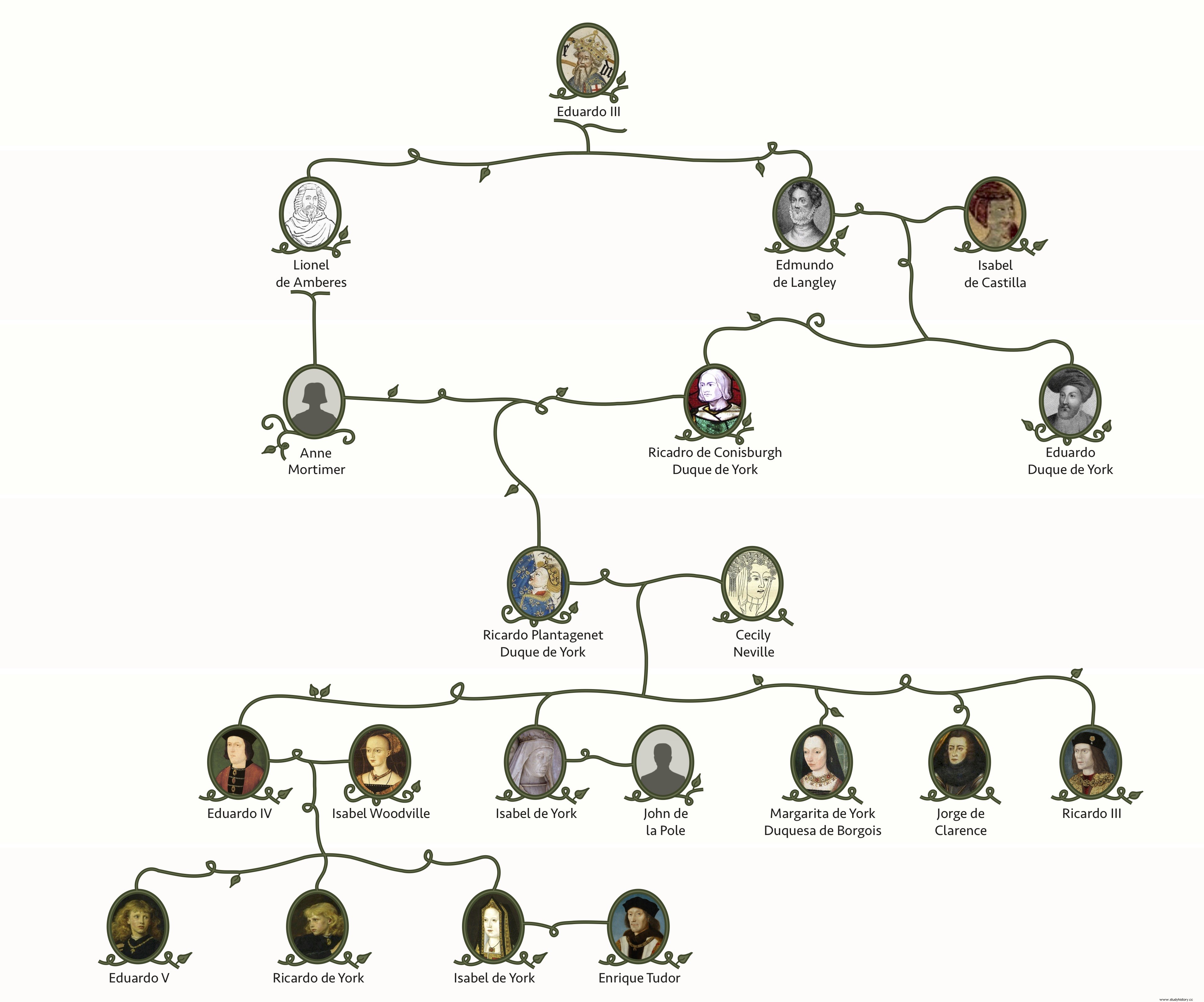
The entries dedicated to Henry VI and Edward IV (see the links) narrate in some detail the evolution of the Wars of the Roses, the conflict for the English throne between the houses of York and Lancaster. To focus on our protagonist, we will place ourselves in the time after his brother Edward IV came to the throne after the battle of Towton in 1461. George was quickly distinguished with the highest honors by his brother; he was created Duke of Clarence and granted the lands of the county of Richmond, which had belonged to a leading member of the Lancastrian party, Edmund Tudor, half-brother of Henry VI.
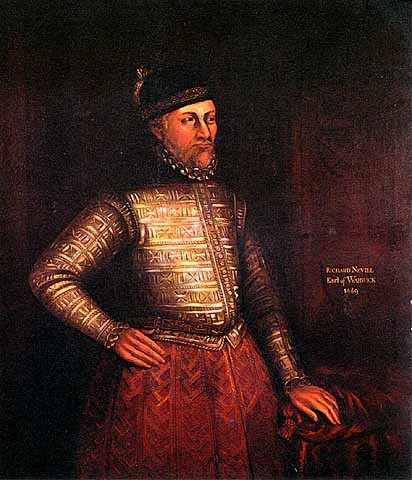
The main ally of the House of York in the The first episodes of the Wars of the Roses had been Richard Neville, Earl of Warwick and cousin of Edward IV and George of Clarence (their mother was the sister of Warwick's father). But as time passed, his differences with Edward IV became more and more accentuated, for different reasons that are detailed in the entries dedicated to Warwick and Edward. And the straw that broke the camel's back of the problems between the two was precisely related to our protagonist today.
Warwick had no sons, but he did have two daughters, so the future of the family inheritance depended on getting the proper marriage commitments for them. He proposed on several occasions to Edward that his eldest daughter, Elizabeth, marry George of Clarence, the king's brother. After stalling for a while, the king finally rejected the marriage proposal.
Warwick then retreated to his northern holdings, refusing to attend royal council convocations while he pondered his next steps. The Warkworth Chronicle relates that at Christmas 1469 there was a ceremony of reconciliation between the king and Warwick, but that "although they agreed on various matters, they never loved each other afterward". The count launched a line of action that ended up giving him the nickname by which he has gone down in history:The Kingmaker (the Enthroner).
The plot against Edward IV in which Warwick was involved involved an unexpected and even more dangerous figure for the king:George of Clarence. Apart from the significance that the opposition to the monarch came from his own brother, it was the fact that Clarence was, as long as Edward IV did not have a son, the first in the line of succession to the throne of England. Consummating the wedding between Clarence and his daughter, which Edward had refused, would put Warwick's offspring on the throne of England if his plan worked.
Clarence had turned 18 in 1468 and in the preceding years his brother had showered him with possessions, titles and monetary allocations, making him one of the most powerful men in the world. kingdom.
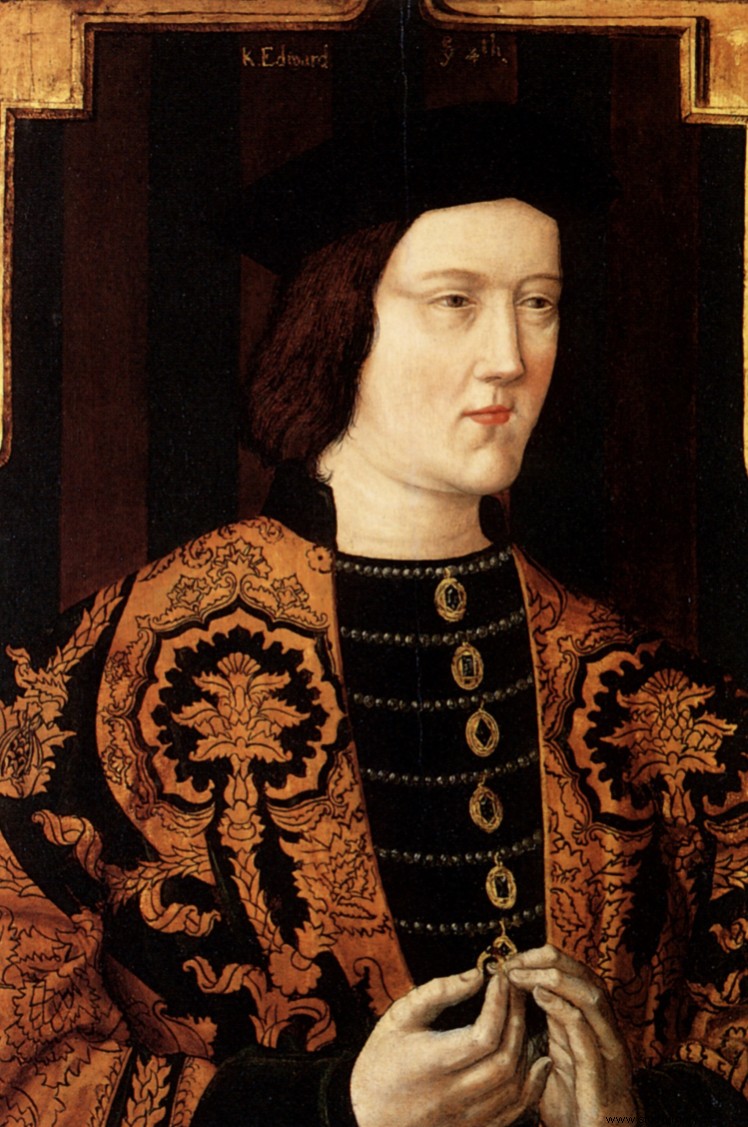
Like Eduardo, he was charming, attractive, intelligent and eloquent. But he was also shallow, spoiled and ambitious. This last characteristic had been fed by the rewards that the king had given him so generously and undeservedly that they only increased his ambition and his desire to always possess more. He was easy prey for his cousin Warwick's plans.
Edward led an army against a rebellion in the north led by a certain Robin of Redesdale. Accompanying the king were several members of his wife's family, the Woodvilles, and his younger brother, Richard of Gloucester. But though he sent messengers to Warwick, Clarence, and George Neville, Archbishop of Canterbury, to join him with their retinues, they not only did not obey, but put to sea at Sandwich and called at Calais, the traditional fief of Warwick.
From Calais they carried out two acts that were a clear challenge to Eduardo IV. On July 11, 1469, the wedding between Jorge de Clarence and Isabel, daughter of Warwick, was celebrated, something to which the king had expressly opposed. And they also sent a letter to the monarch expressing their support for Robin of Redesdale's rebellion.
On July 16 Warwick and Clarence returned to England with the intention of joining the rebel forces. After landing in Kent and passing through London, they moved north, recruiting followers along the way. Edward IV, who was in Nottingham, found himself in a pincer between Robin's forces from Redesdale to the north and those from Warwick and Clarence to the south.
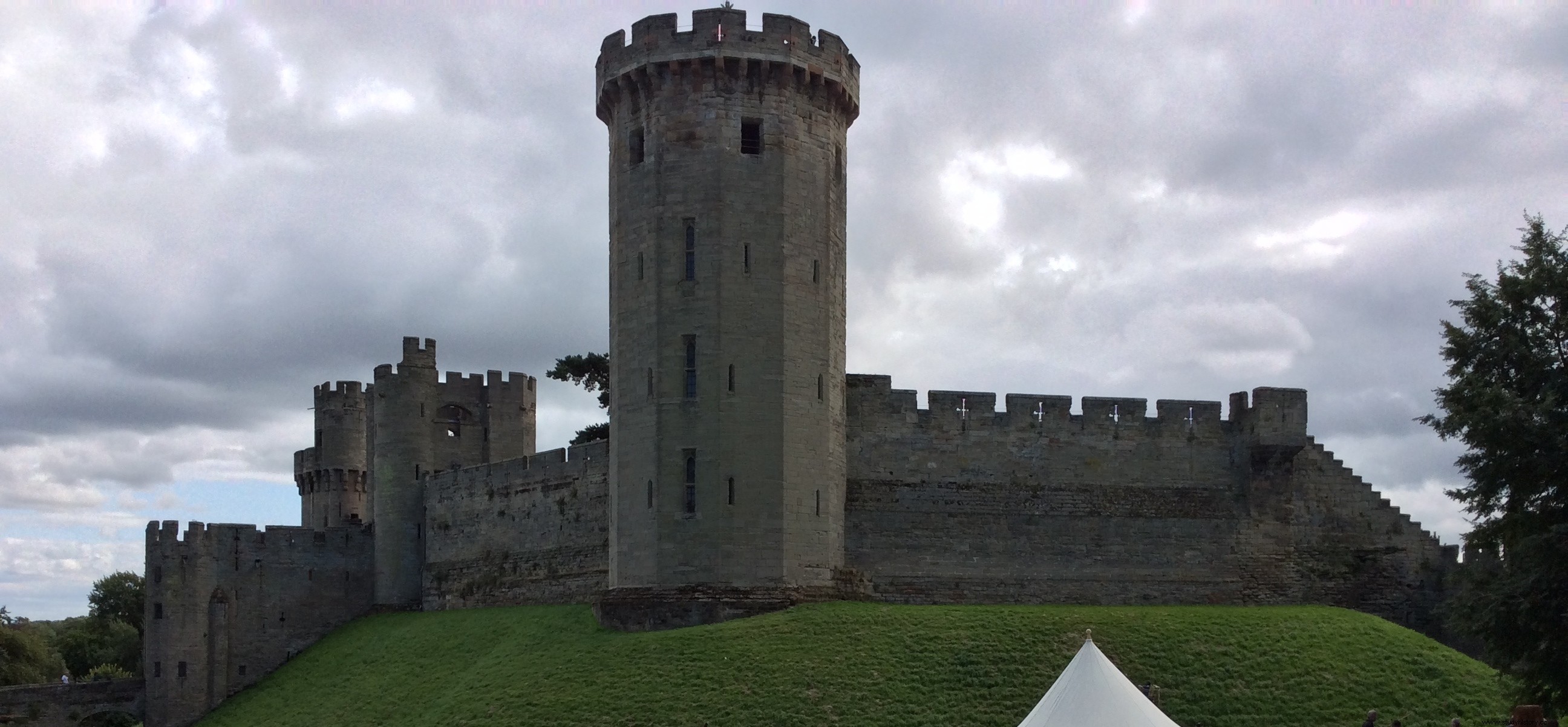
The king's hopes for reinforcements from Wales they were cut short when the royalist army was massacred by rebels at the Battle of Edgecote on 26 July. The news reached the royal army, causing the massive desertion of their men. Alone and desperate, Edward IV was captured by George Neville, Archbishop of Canterbury, and taken to the formidable Warwick Castle.
There was a political standstill, because Warwick was in no condition to rule with Edward IV imprisoned in his castle and the royal council against him. Furthermore, the news of the king's capture had sparked a wave of violence in England, with feuding families taking advantage of the power vacuum to settle old private grievances. Warwick could dispose of the person of the monarch, but he lacked the authority of a king to impose himself. He realized that he had only one solution to guarantee the governability of the kingdom:in October 1469 he freed Edward IV.
The king crushed the northern rebellion and returned in triumph to London where he paraded before the crowd with much pomp and surrounded by his faithful. He issued a general amnesty for what had happened in the north and continued his government work proclaiming to the four winds that Warwick and Clarence had been pardoned and were among his best friends. Subsequent events would disprove this statement and we will dedicate the second entry of this series dedicated to Jorge de Clarence to this.
Image| Wikimedia Commons, author archive.
Family tree drawn up by Ventura Contents for the book What Shakespeare didn't tell you about the Wars of the Roses.
ACKROYD, Peter. A History of England.Volume I (Foundations) . London, Ed. McMillan, 2011.
CARTER, Alice. The women of the Wars of the Roses. Ebook Edition, Editor Alicia Carter, 2013.
FERNANDEZ DE LIS, Daniel. The Plantagenets . Madrid, 2021..
FERNANDEZ DE LIS, Daniel. What Shakespeare didn't tell you about the Wars of the Roses . Madrid, Libros.com, 2020.
JOHNSON, Lauren. Shadow King:the Life and Death of Henry VI (English Edition). Ebook Edition, Apollo, 2019.
JONES, Dan. The Hollow Crown.The Wars of the Roses and the rise of the Tudors . London, Faber &Faber Limited, 2015.
— Plantagenets,The Kings Who Made England . London, Ed.William Collins, 2012.
LEWIS, Matthew. Richard, Duke of York:King by Right . Stroud, Amberley Publishing, Stroud, 2016.
— The Wars of the Roses:The Key Players in the Struggle for Supremacy . Stroud, Amberley Publishing, 2015.
—Richard III. Loyalty Binds Me . Stroud, Amberley Publishing, 2018.
LICENSE, Amy. Cecily Neville, Mother of Kings. Stroud, Amberley Publishing, 2015.
SCHAMA, Simon. A History of Britain . London, BBC Worldwide Limited, 2000.
STRONG,Roy.The Story of Britain .London, Ed.Pimlico,1998.
WILSON, Derek. The Plantagenets,The Kings That Made Britain . Ebook edition, London, Quercus Edition Ltd., 2014.
